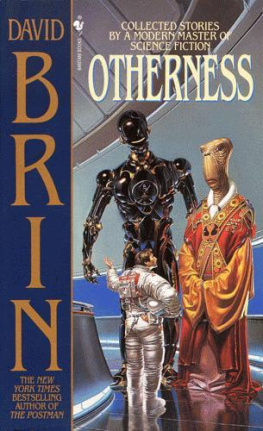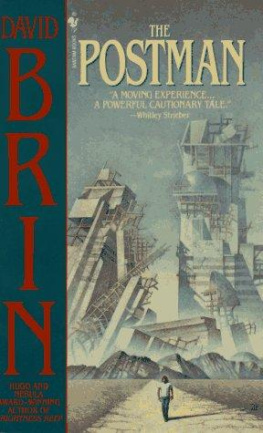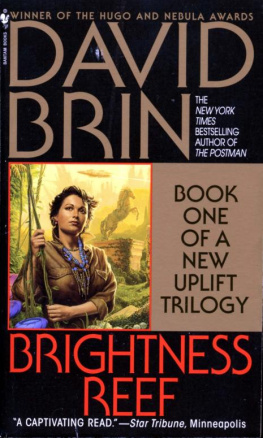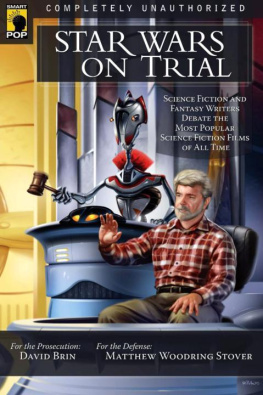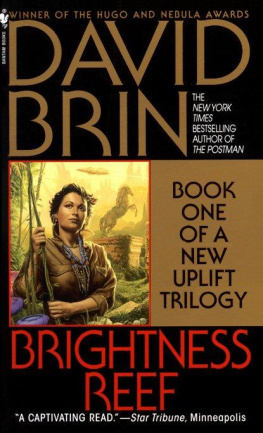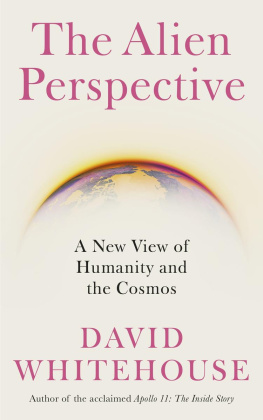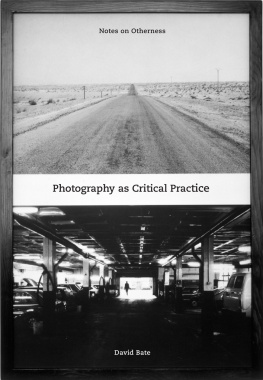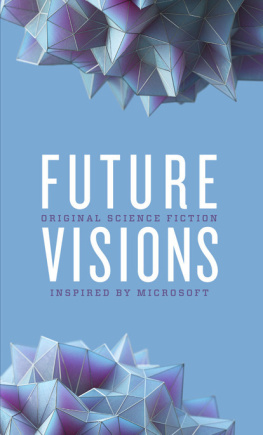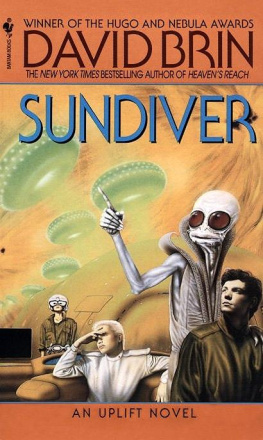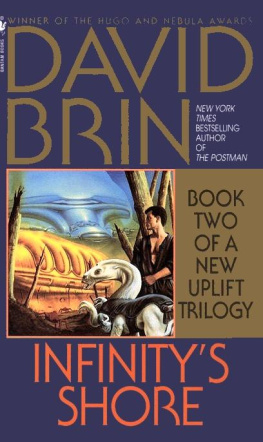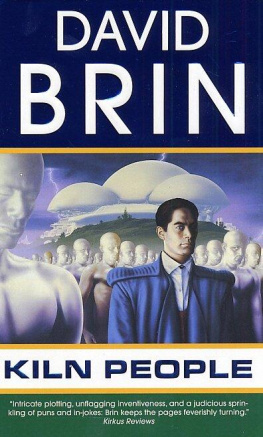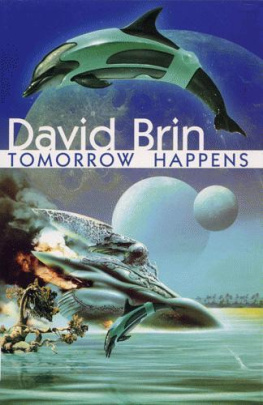OTHERNESS
DAVID BRIN
To Ben, our 21st Century man
CONTENTS
TRANITIONS
CONTACT
CONTINUITY
COSMOS
OTHERNESS
Transitions
The Giving Plague
1.
You think you're going to get me, don't you? Well, you've got another think coming, 'cause I'm ready for you.
That's why there's a forged card in my wallet saying my blood group is AB negative, and a Medic Alert tag warning that I'm allergic to penicillin, aspirin, and phenylalanine. Another one states that I'm a practicing, devout Christian Scientist. All these tricks ought to slow you down when the time comes, as it's sure to, sometime soon.
Even if it makes the difference between living and dying, there's just no way I'll let anyone stick a transfusion needle into my arm. Never. Not with the blood supply in the state it's in.
And anyway, I've got antibodies. So you just stay the hell away from me, ALAS. I won't be your patsy. I won't be your vector.
I know your weaknesses, you see. You're a fragile, if subtle devil. Unlike TARP, you can't bear exposure to air or heat or cold or acid or alkali. Blood to blood, that's your only route. And what need had you of any other? You thought you'd evolved the perfect technique, didn't you?
What was it Leslie Adgeson called you? The perfect master? The paragon of viruses?
I remember long ago when HIV, the AIDS virus, had everyone so awed with its subtlety of lethal design. But compared with you, HIV is just a crude butcher. A maniac with a chainsaw, a blunderer that kills its hosts and relies for transmission on habits humans can, with effort, get under control. Oh, old HIV had its tricks, but compared with you? An amateur!
Rhinoviruses and flu are clever, too. They're profligate, and they mutate rapidly. Long ago they learned how to make their hosts drip and wheeze and sneeze, so the victims spread the misery in all directions. Flu viruses are also a lot smarter than AIDS 'cause they don't generally kill their hosts, just make 'em miserable while they hack and spray and inflict fresh infections on their neighbors.
Oh, Les Adgeson was always accusing me of anthropomorphizing our subjects. Whenever he came into my part of the lab, and found me cursing some damned intransigent leucophage in rich, Tex-Mex invective, he'd react predictably. I can just picture him now, raising one eyebrow, commenting dryly in his Winchester accent.
"The virus cannot hear you, Forry. It isn't sentient, nor even alive, strictly speaking. It's only a packet of genes in a protein case, after all."
"Yeah, Les," I'd answer. "But selfish genes! Given half a chance, they'll take over a human cell, force it to make armies of new viruses, then burst it apart as they escape to attack others. They may not think. All that behavior may have evolved by blind chance. But doesn't it all feel as if it's planned? As if the nasty little things were guided , somehow, by somebody out to make us miserable...? Out to make us die?"
"Oh, come now Forry." He would smile at my New World ingenuousness. "You wouldn't be in this field if you didn't find phages beautiful, in their own way."
Good old smug, sanctimonious Les. He never did figure out that viruses fascinated me for quite another reason. In their rapacious insatiability I saw a simple, distilled purity of ambition that exceeded even my own. The fact that it was mindless did little to ease my qualms. I've always imagined we humans over-rated brains, anyway.
We'd first met when Les visited Austin on sabbatical, some years before. He'd had the Boy Genius rep even then, and naturally I played up to him. He invited me to join him back in Oxford, so there I was, having regular amiable arguments over the meaning of disease while the English rain dripped desultorily on the rhododendrons outside.
Les Adgeson. Him with his artsy friends and his pretensions at philosophyLes was all the time talking about the elegance and beauty of our nasty little subjects. But he didn't fool me. I knew he was just as crazy Nobel-mad as the rest of us. Just as obsessed with the chase, searching for that piece of the Life Puzzle, that bit leading to more grants, more lab space, more techs, more prestige... to money, status and, maybe eventually, Stockholm.
He claimed not to be interested in such things. But he was a smoothie, all right. How else, in the midst of the Thatcher massacre of British science, did his lab keep expanding? And yet, he kept up the pretense.
Viruses have their good side," Les kept saying. "Sure, they often kill, in the beginning. All new pathogens start that way. But eventually, one of two things happens. Either humanity evolves defenses to eliminate the threat or..."
Oh, he loved those dramatic pauses.
" Or ?" I'd prompt him, as required.
"Or else we come to an accommodation, a compromise... even an alliance."
That's what Les always talked about. Symbiosis . He loved to quote Margulis and Thomas, and even Lovelock, for pity's sake! His respect even for vicious, sneaky brutes like HIV was downright scary.
"See how it actually incorporates itself right into the DNA of its victims?" he would muse. "Then it waits, until the victim is later attacked by some other disease pathogen. The host T cells prepare to replicate, to drive off the invader, only now some chemical machinery is taken over by the new DNA, and instead of two new T cells, a plethora of new AIDS viruses results."
"So?" I answered. "Except that it's a retrovirus, that's the way nearly all viruses work."
"Yes, but think ahead, Forry. Imagine what's going to happen when, inevitably, the AIDS virus infects someone whose genetic makeup makes him invulnerable!"
"What, you mean his antibody reactions are fast enough to stop it? Or his T cells repel invasion?"
Oh, Les used to sound so damn patronizing when he got excited.
"No, no, think!" he urged. "I mean invulnerable after infection. After the viral genes have incorporated into his chromosomes. Only in this individual certain other genes prevent the new DNA from triggering viral synthesis. No new viruses are made. No cellular disruption. The person is invulnerable. But now he has all this new DNA..."
"In just a few cells"
"Yes. But suppose one of these is a sex cell. Then suppose he fathers a child with that gamete. Now every one of that child's cells may contain both the trait of invulnerability and the new viral genes! Think about it, Forry. You now have a new type of human being! One who cannot be killed by AIDS. And yet he has all the AIDS genes, can make all those strange, marvelous proteins... Oh, most of them will be unexpressed or useless, of course. But now this child's genome, and his descendants', contains more variety ..."
I often wondered, when he got carried away this way. Did he actually believe he was explaining this to me for the first time? Much as the Brits respect American science, they do tend to assume we're slackers when it comes to the philosophical side. But I'd seen his interest heading in this direction weeks back and had carefully done some extra reading.
"You mean like the genes responsible for some types of inheritable cancers?" I asked sarcastically. "There's evidence some oncogenes were originally inserted into the human genome by viruses, just as you suggest. Those who inherit the trait for rheumatoid arthritis may also have gotten their gene that way."
"Exactly. Those viruses themselves may be extinct, but their DNA lives on, in ours!"
"Right. And boy have human beings benefited!"
Oh, how I hated that smug expression he'd get. (It got wiped off his face eventually, didn't it?)

